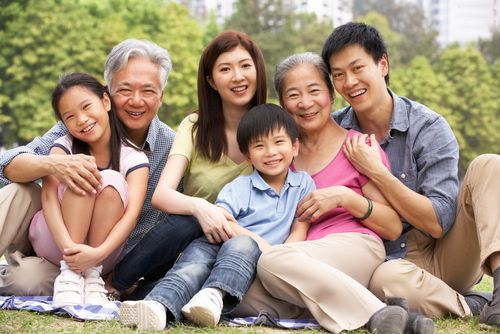 In the heart of California, nestled deep within the Sacramento-San Joaquin Delta, lies the city of Antioch—a place with a rich and complex history. Beneath its modern façade and the busy lives of its 111,000 residents, Antioch harbors a shadowy past of prejudice, discrimination, and violence against early Chinese immigrants. While this narrative is common in America, Antioch is doing something rare, confronting these past injustices and taking significant steps towards reconciliation and healing by embracing the Buddhist tradition of karmic healing.
In the heart of California, nestled deep within the Sacramento-San Joaquin Delta, lies the city of Antioch—a place with a rich and complex history. Beneath its modern façade and the busy lives of its 111,000 residents, Antioch harbors a shadowy past of prejudice, discrimination, and violence against early Chinese immigrants. While this narrative is common in America, Antioch is doing something rare, confronting these past injustices and taking significant steps towards reconciliation and healing by embracing the Buddhist tradition of karmic healing.
A Legacy of Discrimination
Lured by the promise of the Gold Rush and the demand for labor on the transcontinental railroad, thousands of Chinese people left their homes and families to journey to America in the 1800s. However, xenophobic and racist sentiments among Americans surged and eventually resulted in the Chinese Exclusion Act of 1882, which halted Chinese immigration and set a precedent for decades of discriminatory policies. So even while Chinese immigrants pushed the economy to new heights, they were subjected to sundown laws, property ownership bans, and wage disparities.
Like many other towns in California that sprang up during the 19th-century gold rush, Antioch has a history of discriminating against Chinese immigrants. The pinnacle of this discrimination in Antioch was the deliberate torching of the city's Chinatown, a tragic event that decimated the lives and livelihoods of its residents.
Against this backdrop of injustice and hardship, Chinese immigrants and their descendants carved out resilient communities and contributed immeasurably to the economic, cultural, and social fabric of America. Their perseverance in the face of adversity laid the groundwork for future generations to fight for equality and justice.
The Power of Apology
In November 2022, Mayor Lamar Thorpe extended an apology to Alfred Chan, a World War II veteran and a direct victim of Antioch's discriminatory past. Though words alone cannot undo the damage, this act of acknowledgment is a critical step toward healing.
Antioch's formal apology in May 2021 for its mistreatment of early Chinese immigrants sparked a wave of similar resolutions in major cities and ignited a deeper exploration into the local history. It culminated in efforts to establish a Chinatown Historic District in Antioch.
Embracing Karmic Healing
Antioch is charting a course toward reconciliation and unity by embracing Buddhist principles, specifically the tradition of karmic healing. This spiritual approach seeks to address and mend the deep-seated scars of historical injustices and discrimination, fostering a community environment where healing and understanding flourish.
Karmic healing is rooted in the belief that actions in this and previous lives affect future well-being and offers a framework for confronting the repercussions of past actions. It emphasizes the importance of intention, compassion, and mindful action. By integrating these principles, Antioch aims to cultivate a collective consciousness that acknowledges historical wrongs and actively works towards redressing them.
Community leaders, Buddhist monks, Taoist priests, and other spiritual practitioners have initiated workshops on mindfulness, compassion, and intercultural understanding. They have also held events to cleanse the city and honor the people hurt by past transgressions. Moreover, the city has seen the establishment of meditation centers and community gardens, where people from all walks of life come together to nurture peace and healing.
Setting a Precedent for Justice and Healing
Through the adoption of karmic healing, Antioch is not merely confronting its past but is also setting a precedent for how cities can heal and transform. Alongside actions such as establishing murals and museum exhibits that celebrate the history and accomplishments of the Chinese-American community, embracing Asian American spiritual practices is a bold and powerful move.
This journey towards healing and reconciliation underscores a powerful message. Understanding interconnectedness and acting with mindful compassion can guide people toward a more harmonious and equitable society.



